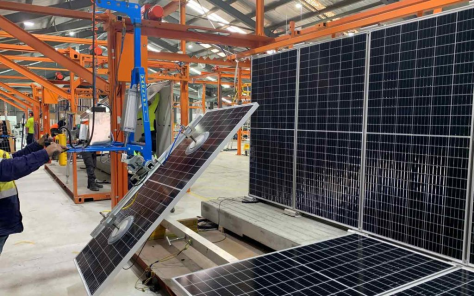Building a domestic solar panel manufacturing industry based on Australian innovation could generate up to 60,000 jobs and help cement the nation’s future as a renewable energy superpower. However, access to capital and focused policies are essential if manufacturers are to reach scale where they can be internationally cost-competitive.

A new report, commissioned by the Australian Manufacturing Workers’ Union (AMWU) and Climate Action Network Australia, highlights the potential for Australia to play a lead role in the clean energy transition as global demand for critical minerals and renewable energy creates new opportunities to leverage its “significant” advantages in technology and resources.
The “Towards a Renewable Energy Superpower” report lays out key employment and economic opportunities associated with the global clean energy transformation, but also warns of the need for government to identify key areas for investment and to develop coherent industry policy platforms to ensure Australia stakes out its future as a renewable energy superpower.
“Right now, we are being left behind, if not going backwards, as other major economies around the world make massive investments in manufacturing renewable energy infrastructure,” the report says. “The time to change this, through focused policy action and investment by government, is now.”
Australia is already playing a role in a number of major clean energy technology sectors, including solar, wind, critical minerals, battery energy storage and electric vehicles (EVs), but that participation is often thin, with only a handful of companies involved.
AMWU National Secretary Steve Murphy said Australia’s comparative advantages in resources, solar and wind and research and development provide a significant opportunity to invest in more downstream value-adding activities, build capacity in domestic manufacturing sector and create the jobs of the future.
“Australia is a global leader in renewable energy research and development and has access to the best renewable energy sources in the world, yet our contribution to date has been bound up in our reputation as a ‘dig and ship’ economy, where minerals are sent offshore to produce energy and manufactured goods,” he said.